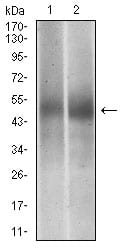
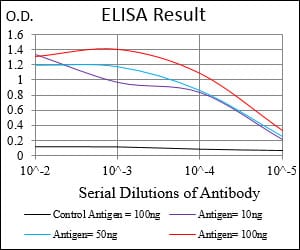
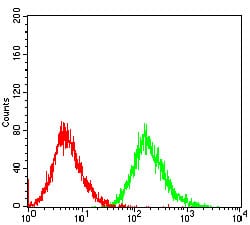
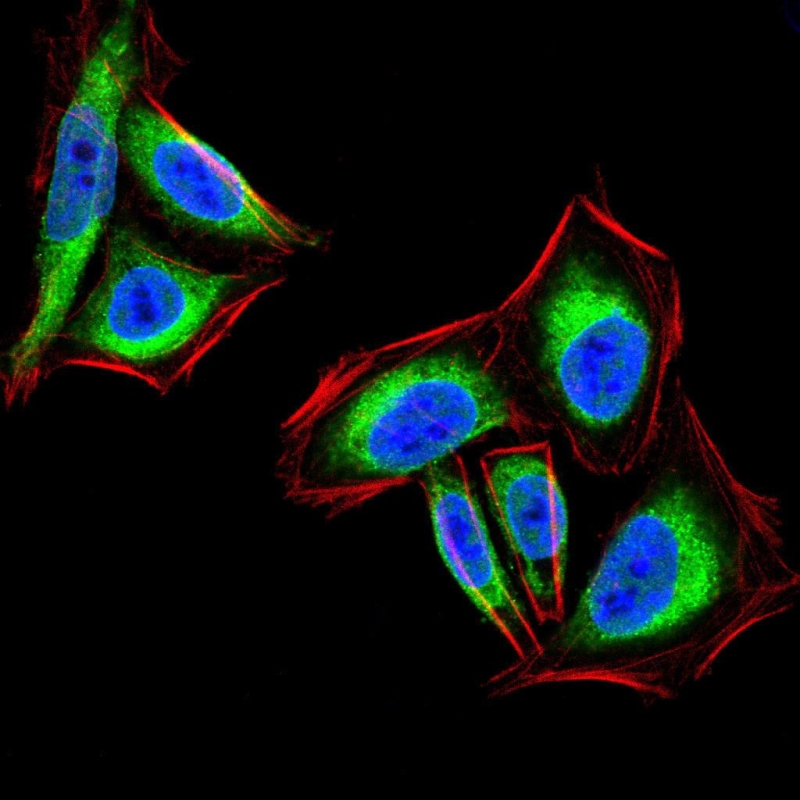
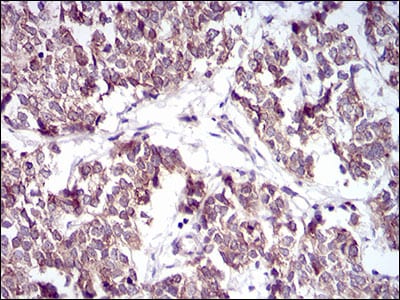
| WB | 咨询技术 | Human,Mouse,Rat |
| IF | 咨询技术 | Human,Mouse,Rat |
| IHC | 咨询技术 | Human,Mouse,Rat |
| ICC | 技术咨询 | Human,Mouse,Rat |
| FCM | 咨询技术 | Human,Mouse,Rat |
| Elisa | 咨询技术 | Human,Mouse,Rat |
| Aliases | PTP1B |
| Entrez GeneID | 5770 |
| clone | 4F8F11 |
| WB Predicted band size | 50kDa |
| Host/Isotype | Mouse IgG1 |
| Antibody Type | Primary antibody |
| Storage | Store at 4°C short term. Aliquot and store at -20°C long term. Avoid freeze/thaw cycles. |
| Species Reactivity | Human |
| Immunogen | Purified recombinant fragment of human PTPN1 (AA: 40-246) expressed in E. Coli. |
| Formulation | Purified antibody in PBS with 0.05% sodium azide. |
+ +
以下是关于FHIT抗体的3篇代表性文献(信息基于公开研究整理):
1. **文献名称**:*The FHIT gene, spanning the chromosome 3p14.2 fragile site and renal carcinoma-associated t(3;8) breakpoint, is abnormal in digestive tract cancers*
**作者**:Ohta M, et al.
**摘要**:该研究首次克隆了FHIT基因,发现其在消化道肿瘤(如胃癌、食管癌)中因染色体3p缺失而异常。通过FHIT抗体检测,证实肿瘤组织中FHIT蛋白表达缺失,提示其作为抑癌基因的功能丧失与癌症发生相关。
2. **文献名称**:*Loss of FHIT function in lung cancer and preinvasive bronchial lesions*
**作者**:Sozzi G, et al.
**摘要**:研究利用FHIT抗体进行免疫组化分析,发现肺癌及癌前病变中FHIT蛋白表达显著降低或缺失,且与吸烟暴露相关,表明FHIT失活是肺癌早期事件,可能作为生物标志物。
3. **文献名称**:*FHIT基因在乳腺癌中的表达及其临床意义*
**作者**:Huebner K, Croce CM
**摘要**(概括):通过FHIT抗体检测乳腺癌组织,发现FHIT蛋白缺失与肿瘤分级、淋巴结转移及预后不良显著相关,支持FHIT作为乳腺癌潜在治疗靶点。
(注:部分文献为早期经典研究,近年研究可进一步补充)
The FHIT (Fragile Histidine Triad) antibody is a crucial tool for studying the FHIT protein, encoded by the *FHIT* gene located at chromosome 3p14.2. This gene spans a common fragile site (FRA3B) prone to DNA damage, deletions, or epigenetic silencing in cancers. FHIT functions as a tumor suppressor by hydrolyzing diadenosine polyphosphates, generating signaling molecules that regulate apoptosis and cell cycle arrest. Loss or reduced FHIT expression is frequently observed in various malignancies, including lung, gastric, and breast cancers, often due to promoter hypermethylation or genomic alterations.
FHIT antibodies are widely used in research to detect protein expression patterns via immunohistochemistry (IHC), Western blotting, or immunofluorescence. These antibodies help correlate FHIT downregulation with tumor progression, metastasis, or poor prognosis. Additionally, they aid in exploring FHIT's role in stress response and DNA damage repair pathways. Commercially available FHIT antibodies target specific epitopes, requiring validation for specificity across applications. Studies using these reagents have highlighted FHIT's potential as a therapeutic target or biomarker, with efforts to restore its expression via demethylation agents or gene therapy. Ongoing research continues to unravel its interactions with other tumor suppressors and oncogenic signaling networks.
×